For almost a decade, I’ve been slowly eliminating as many toxins as possible from my life. Plenty of low-tox living practices and products that now feel perfectly natural to me, are absolutely alien to others. When I happen to mention that I don’t use shampoo, or anything perfumed, or that bicarbonate of soda is the go-to cleaning product in my bleach-free home, I’m usually met by horror, intrigue or both.
Let me assure you, I don’t smell bead. My home doesn’t smell bad. Usually, when people get over the initial reaction of ‘ew, you don’t use hygiene products,’ they notice that I’m clean and well put-together. That’s when they ask the obvious question – why?
In case you’re interested, here’s my answer to that question.
Why bother living low-tox?
Toxins are substances that the body doesn’t want and doesn’t know what to do with. They contribute nothing positive to the ecosystem that is you. Getting them out of that system takes energy. In some cases, it takes only a small amount of energy but that’s energy you wouldn’t need to expend, if you didn’t put them in there in the first place.
Many of the products considered to be normal, even vital, parts of everyday life are so packed with toxins as to be positively toxic and I want to save my energy for more worthwhile pursuits than clearing them out. Plus, side note, I can tell you from experience that they’re not vital at all.
Toxin is another word for poison. In tiny amounts, our bodies can handle them but when there are tiny amounts found in the things we eat, clean with, bathe in, sleep in and wear every day, those tiny amounts add up to create a toxic load in our systems that can contribute to illness. I am not a scientist or a medical professional but I think I’m on safe ground when I suggest that limiting my exposure to poisons is good for me.
I am lucky that I don’t have any health conditions. I use low-tox living as a preventative measure, along with mindfulness, time in nature and a plant-based diet, to help me stay well as I age.
How to decrease the amount of toxins in your life
Toxins are everywhere, so whatever part of your life you focus on, you can probably do something to eliminate a few of them. I list lots of ideas below, all of which are things that I incorporate into my daily life. I am by no means suggesting that you incorporate all of them into your life anytime soon. Though, if you decide to give it a go, good on you!
I have been slowly transitioning from a lifestyle that involved giving zero consideration to this stuff, to one where buying and consuming things that are as natural and low-tox (as well as ethically sourced and eco-friendly) as possible, is of top priority.
I’ve been at it for a decade. If you’re thinking of putting your first toe in the water, be gentle with yourself. Any one of the points I list here could start hours of deep dives into YouTube wormholes if you let it.
If you read the rest of this piece and feel motivated to take action, I suggest beginning with the quick wins. Pick one, maybe two things that you could incorporate into your life with minimal effort. Then do it. Taking a few small actions towards low-tox living is infinitely better for your wellbeing than reading this article, deciding it all sounds like too much, and doing nothing.
It’s also a good idea to bookmark this page. That way you can return to it if and when you feel ready to make further changes.
Let’s get into the list
Here are some tips, practices and products that I use regularly, during my low-tox life. If you’re interested to know more about any point, get in touch. You can also find loads of great articles and videos on all of these things online. For the most part, that’s how I learnt this stuff. The wormholes await!
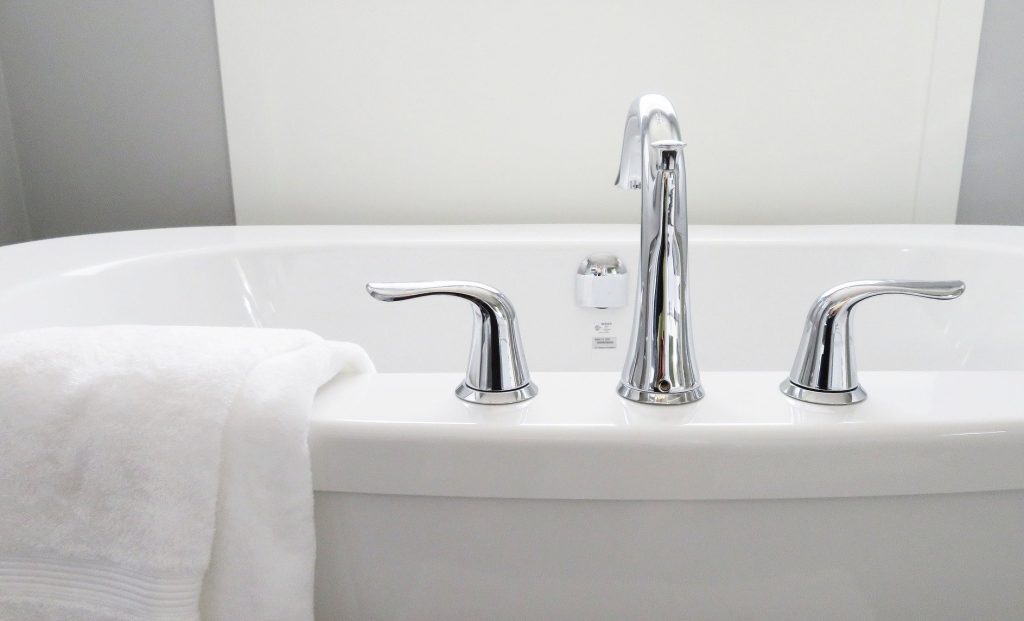
Hygiene
Most people believe hair that has been washed with chemical filled soap, then covered with man-made wax and finished with toxic hairspray is clean, yet hair that has been washed using nothing but filtered water is dirty. Consider that for a moment. Who sold us that idea? How much did they make from it?
We’ve been sold a lie when it comes to hygiene. Our bodies are not the enemy in our quest to be clean. Quite the opposite. Your body knows what it’s doing and will stay pretty clean with minimal effort.
Here are some of the products and practices I use:
The no-poo method
All I use to wash my hair is water. Really. When I first stopped using shampoo it was greasy for a few weeks but then it began to regulate itself. Shampoo strips our hair of its natural oils. Our bodies then over produce that oil to make up for it. Leave it alone and it will find its own balance. I do something called ‘scritch and preen’, which I find works pretty well to distribute the natural oils through my hair and keep it well conditioned (my hair is pretty short, which helps, but my long-haired sister has used this method with good results too).
I switched to a natural shampoo bar for a few years before I went no-poo. That’s a good switch to make if you’d like to cut the chemicals but carry on washing. It’s also a good way to transition to the no-poo method. I used bicarbonate of soda to wash my hair when I first went no-poo and it left my hair really clean but also really dry. I wouldn’t recommend it.
Water only, plus scratching and preening has been the winner for me.
Shower water filter
Shower filters get mixed reviews. I only installed mine recently. Before I did, I found lots of anecdotal evidence of their effectiveness, from people saying they’d had less dry skin, less hair fall etc. I couldn’t find much about the science behind them. I decided to go for it anyway. I can get such dry skin and I know our water has lots of chlorine in it, so for under £40 thought filtering my shower water was worth a go.
I could smell a difference in the water immediately and I now rarely moisturise post-shower, whereas before I installed the filter my skin would have been so dry and tight I’d have done it right away, every time. It’s definitely been worth it for me.
I bought this one from Pure Showers. Dave and I are both loving it.
Natural deodorant
There are so many chemical free deodorants out there and most of the ones I’ve tried work great! Personally I now use a crystal deodorant. It’s just a big lump of crystal. You wet it a little, rub it under your arms and don’t smell all day, no matter how hard you work out. Natural deos are not antiperspirant so you’ll still sweat, it just won’t smell.
Antiperspirant actively blocks your sweat glands and I am not a fan of blocking any of the functions my body was designed for, so I avoid it. If you use antiperspirant right now, a natural deodorant might take a while to get used to but it’s worth it.
I like this plastic free one and it lasts AGES.
Menstrual cup
There are lots of natural period products on the market these days, so you don’t need to stray too far away from whatever you use right now to find a low-tox alternative.
Personally I LOVE my menstrual cup. It took me a few days to get used to but that was years ago now and I’ll never go back. I’ve had friends who really can’t get comfortable with them and opt for reusable bamboo panty liners instead. I have a couple of those for my heaviest days and they are good but bulky. I’m definitely considering investing in a few pairs of period proof underwear right now, and just spotted this new chemical free, eco-friendly period pants brand that looks great.
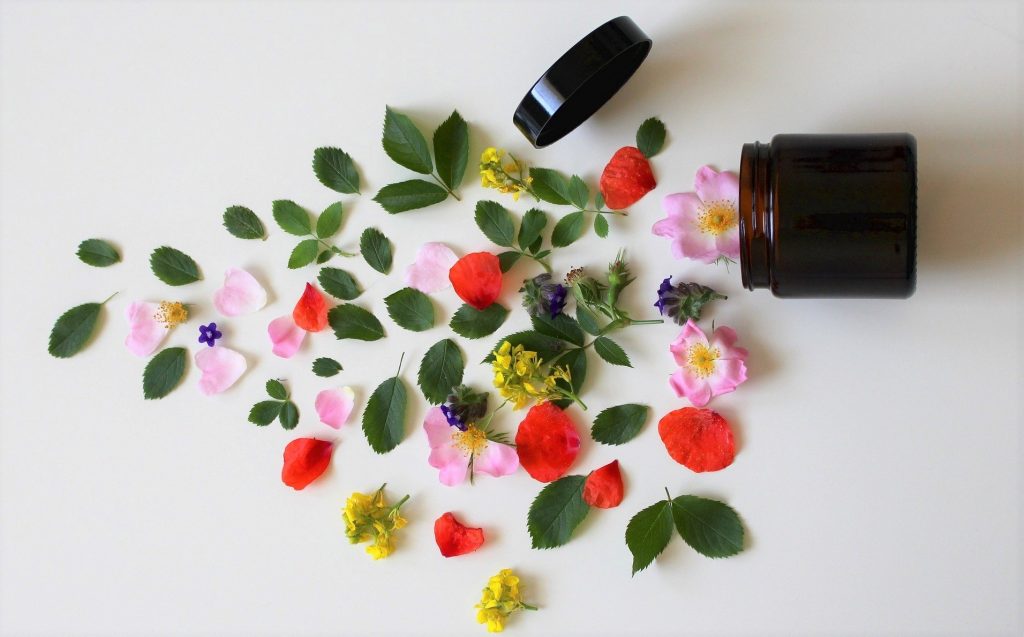
A low-tox beauty regime
Make up
I’ve never worn a lot of makeup. These days I can go months without at all wearing any at all (I’m writing this during lockdown so I know it’s definitely been at least three months right now). When I do use make up, I buy Tropic Skincare. I’m not affiliated to the brand in any way. It’s just what I like.
Particularly if you are someone who uses make up all over your face on a regular basis, it’s well worth looking for a low-tox option, because our skin is so absorbent. This is one of the most natural I’ve found and the company seems pretty ethical too. If you like the look of it, look out for a local representative in your area and buy it from them. You can order online too but it’s nice to help someone local to earn their living, isn’t it?
Henna hair dye
I didn’t put a thing on my hair for the longest time. When I was younger I dyed it every colour but then I left it naturally brunette for most of my 20s and 30s (apart from a short-lived platinum blonde interlude about 10 years ago). I started getting a visible amount of grey at around age 38 though and at first I just reached for the the most natural, ethical, vegan full coverage dye I could find but it just didn’t sit right with me to be putting any amount of chemicals on my hair on a regular basis, so recently I switched to henna.
This is the last product I switched because henna is messier and takes longer to apply than chemical dyes. You can’t get it done in the hairdressers and you can’t pick your shade as accurately. Sounds awful, doesn’t it? Actually though, I love it!
I get my henna hair dye from Lush and it is like a full treatment for your hair. It contains absolutely nothing nasty and loads of nourishing good stuff. I do have to wash my hair with a shampoo bar to get the henna off but that’s the only time I use anything other than water, so that’s once every six weeks ish. I reframed the whole thing; now, instead of thinking of it as a lengthy ordeal, I consider it a ritual and really make a night of pampering myself.
DIY moisturiser
You absolutely do not need man made moisturisers. I promise. Switch to store cupboard ingredients and your skin will thank you for it, plus you’ll save a fortune!
I use cold-pressed organic rosehip oil for my face, which is divine. I buy it from Ebay and it costs very little. For my body, I mix coconut oil with shea butter by buying organic, raw versions of both, squishing them into a glass jar together, then standing that jar in boiling water until they melt and mix. More shea makes it thicker, more coconut oil makes it lighter. 50/50 is pretty great but you can play around with quantities to find what you prefer.
I’ve made that concoction for so many friends who have loved it and never looked back. If you want to add scent or additional beneficial properties you can add essential oils (more on my love of those below). I’d say this is one of the easiest low-tox living tips for most people to incorporate.
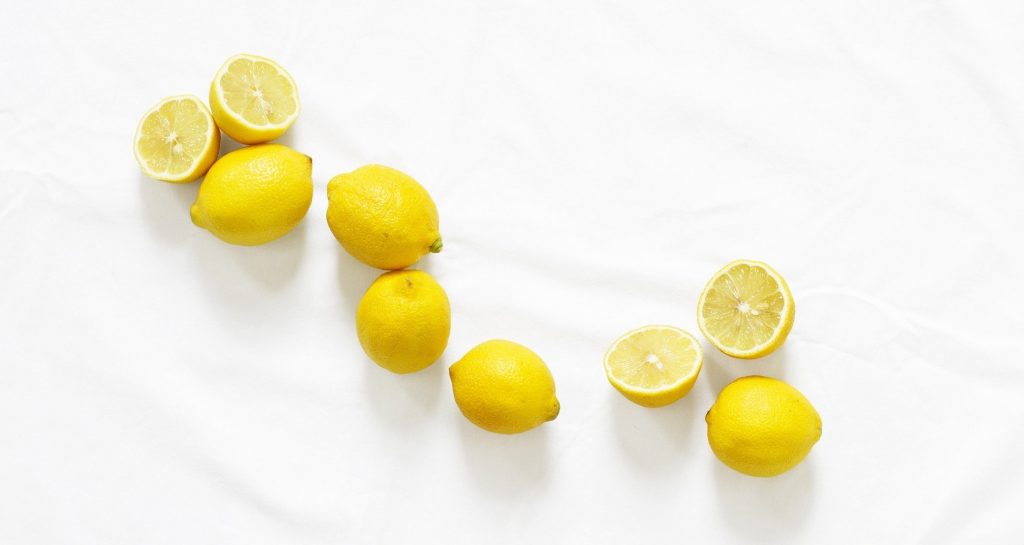
Household cleaning
Low-tox living is not just about what we put in and on our bodies directly. You can take so many toxins in through your lungs. We know this, of course. Everybody appreciates the dangers of passive smoking but did you know that in 2018 scientists warned that cleaning products could be as bad for the body as smoking 20 cigarettes a day? A sobering thought.
I have a few great microfiber cloths that I bought from TK Maxx which claim to get rid of 99% of germs and bacteria using only water. They honestly clean my bathroom and kitchen better than anything else, and leave it sparkling. In addition to those, I use the following:
Bicarb, lemon and vinegar
These three magical ingredients will get you a long way, when it comes to low-tox cleaning. Blocked drain? Pour bicarbonate of soda (known in the US as baking soda) down the drain then follow it with a big squeeze of vinegar and you’ll see it fizz. Leave it for a while then flush it through with hot water. Need to scrub the bath or the toilet? Bicarb is a natural abrasive. Want your windows to shine? You can’t beat a mixture of vinegar and water, finished by polishing with newspaper.
Google ‘natural cleaning tips’. If you’re anything like me you won’t surface for hours and when you do you’ll be a changed person.
Castile soap
Anytime I do need soap, I use organic castile soap. Like the other three ingredients, it’s 100% natural and you can use it for so many things. Dr Bronnar’s is the most well-known version of this soap and it’s such a lovely, ethical brand too. I use it daily as body wash and handwash and it’s the only cleaning product I take with me when I travel because it can be used for dishes, laundry and even dog shampoo.
If you are surprised by the price of castile soap, remember that it goes a LONG way. I have it next to my sink and only need a few of drops to scrub my hands with a good lather. You can also dilute it heavily.
Here’s a list of recommended uses for Dr Bronnor’s castile soap.
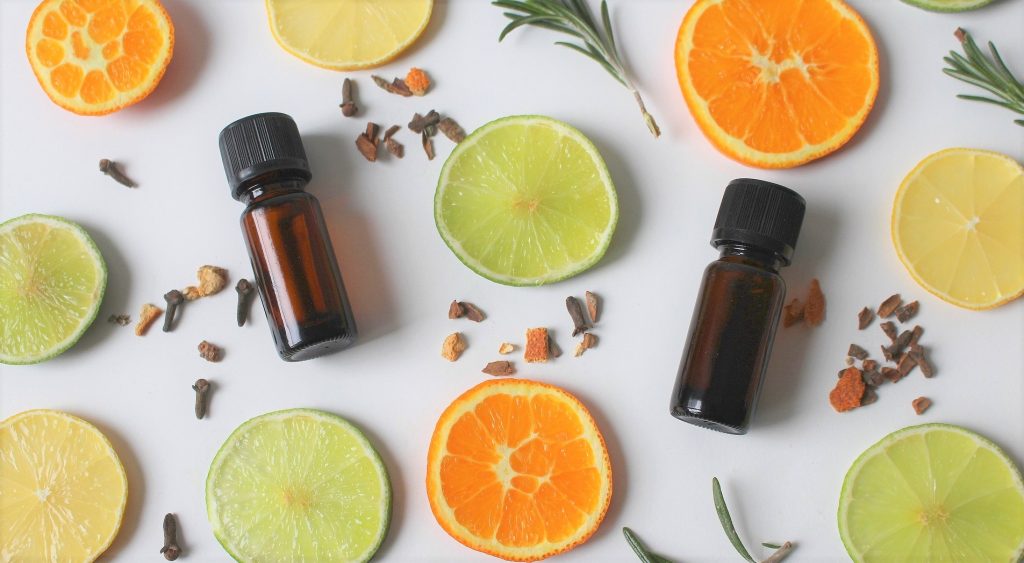
Low-tox lifestyle
I realise that everything I’ve written about so far could, technically, go under the heading of low-tox lifestyle! Just consider this the miscellaneous section. It contains some of the most important low-tox living tips yet.
Organic food
This is a big one. If you can, where you can, it is always a good idea to choose organic. I get that organic food is more expensive and can feel prohibitive but that organic stamp is the biggest guarantee you are going to get that the food you’re buying is significantly lower in toxic chemicals than any other.
And there are ways to eat organic without breaking the bank. For example, buying dried goods in bulk is a great idea, as is shopping local and in season. Fresh, plant-based produce will go further, cost you less and ultimately serve your body better than pre-packaged goods or meat (don’t just take that from me, take it from one of the world’s leading authorities on gut health, the Gut Health MD).
If increasing your intake of fresh, organic food is a new idea for you and you want a starting point, I suggest looking up a few tasty, simple recipes, like bean chilli, lentil stew and simple soups, then using them to prepare a shopping list.
Filtered water
I haven’t drunk a glass of unfiltered water for so long that tap water now smells like a swimming pool to me and tastes just as bad. I like to drink distilled water or water that has been filtered using a particularly thorough filter. There are lots of cheap filters on the market and anything is better than nothing but honestly, most of those at the lower price point do very little to reduce the toxins in tap water.
When you see (and smell) what a distiller removes from your water you’ll know why you needed it. There are articles online warning of the ‘dangers’ of distilled water but I did a crazy amount of research on this years ago and decided that the scary articles were misinformation. You may decide different, that’s up to you, but I then drank distilled water for years and felt fantastic.
When Dave moved in he brought a filter with him, so now we use a combination of both – his and hers water purification methods – mostly because it takes hours to distil four litres with the Megahome water distiller that I have, so we can’t keep up with our own demand. If you consider opting for a filter, it seems to me that Berkey water filters are about the best on the market right now. Plus the filter cartridges last so long that they work out pretty economical.
Organic essential oils
I love essential oils. I went through a phase of using them daily as perfume, in moisturiser, to clean the house… the list went on. They are amazing for all of these things, so long as you buy good quality ones.
I actually use them a little less now because I learnt that the strong scents cause a hormonal response in the body. I don’t have hormonal issues but I’d like things to stay that way so, as with all of these practices, I heeded the advice as a preventive measure. I still love essential oils though and I wouldn’t be without them for so many reasons.
Specifically, I use DoTerra essential oils. I’m not affiliated with this brand either but I researched oils heavily when I first got into them. I discovered that there is very little regulation when it comes to claims that brands can make and ingredients that oils can contain (even if the bottle says they are pure, organic and natural that actually means very little, believe it or not!). DoTerra is the most transparent brand I’ve found and I trust them to be truly low-tox because they make their production processes completely public.
I use them for cleaning, skincare, insect repellent and insect bites, cuts and scrapes, upset tummies, burns, headaches, colds and basically all other minor ailments. Legally nobody is allowed to recommend them for health concerns in the UK, despite the fact that they are routinely recommended for all manner of things in France, so I’ll just say that, personally, they have completely replaced my medicine cupboard for years. Please, PLEASE pay the extra for quality though. With the best quality the dose is generally one drop and they never go off, so they last ages. DoTerra’s Family Essentials kit is an absolute must for me and I am always packing this selection of oils, whether at home or travelling.
Organic bedding
At the moment I’m transitioning to wearing more natural fibres. The materials we wear (and sleep between) can, and for the most-part do, contain toxins in their man-made fibres and synthetic dyes. I’ve bought a few natural fibre pieces recently and an additional bonus of doing so is that they are often ethically produced. I have also recently finished replacing all of our bedding with organic cotton, coloured with safe dyes. This felt important, since we spend so much time with our entire bodies wrapped in this material.
Doing this can get pricey, so it can take time and I realise that it may be cost probibitive for some people, but it’s well worth considering. Plus, I managed to get ours for an AMAZING deal on Ebay – I’m talking enough sets for both beds, for the price I expected to pay for one set (Shopping is pretty much my superpower!). So shop around – you never know what offers you might find.
And we’re done!
Wow, that’s definitely the longest blog post I’ve ever written! I hope you find it useful.
Like I said up front, please don’t be daunted by all of this information. Pick one or two areas to begin with. Go for quick wins and do your own research. What’s right for me won’t necessarily be right for you.

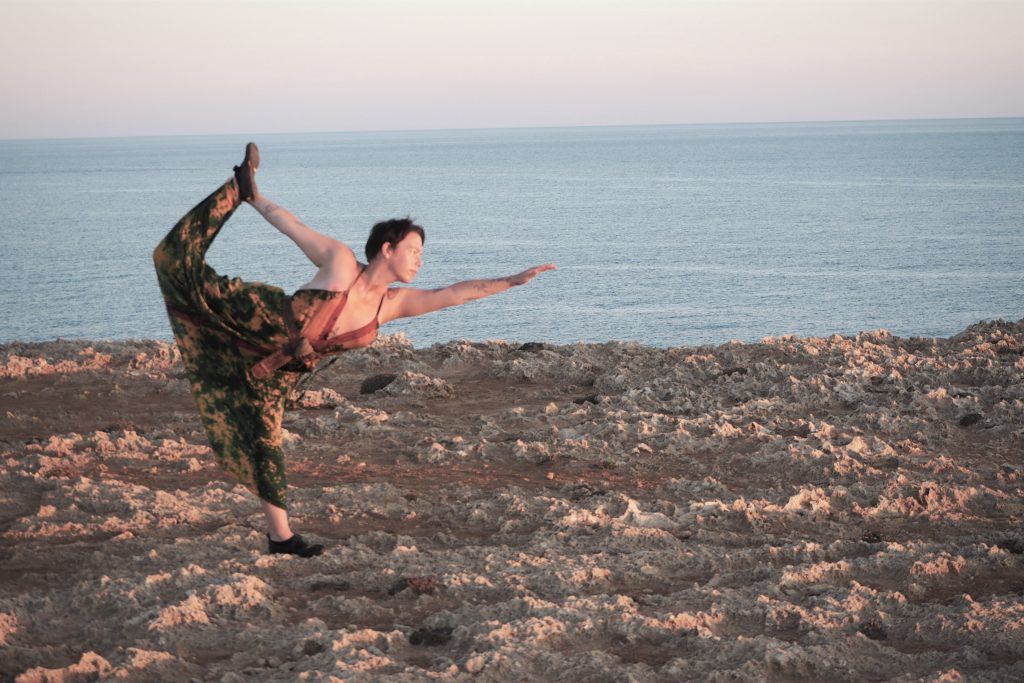
Thanks Gill. This is agreatblog. Really useful info and a big prompt to make some more changes!
You’re so welcome! Really glad you enjoyed it.
Love it. I use and used some of these tips. Question : any tips to deal with mould in the bathroom tiles? We tried tee tree essential oil with no luck.
Hmmmm, I haven’t tried this personally but have heard that vinegar can be really effective at getting rid of mould. Maybe have a look into that.
Hi. Only seen your reply right now, Will try vinegar XX
Gill, you’re talking my language! I’ve gradually reduced the amount of toxins in my life too! Loved reading your post. On the hair front, I too use henna (pure organic) and love it! I’m also with you on organic food front. I’ve also stopped drinking alcohol which made the biggest difference – almost four years ago now – don’t miss it a bit nor does my body! I’m going to look at the crystal deodorant you mentioned. (I use Eco by Sonia Driver currently). Are you planning to do more posts like this? I love them!
Thanks for the feedback. Really great to hear that you enjoyed the post. I don’t really plan my content, I just follow any instincts that arise, so I’m not sure what I’ll write next. Living naturally is a big part of my life so it’s very probable that I’ll write more on this topic. Thanks for the product recommendation too; I’ll check it out.